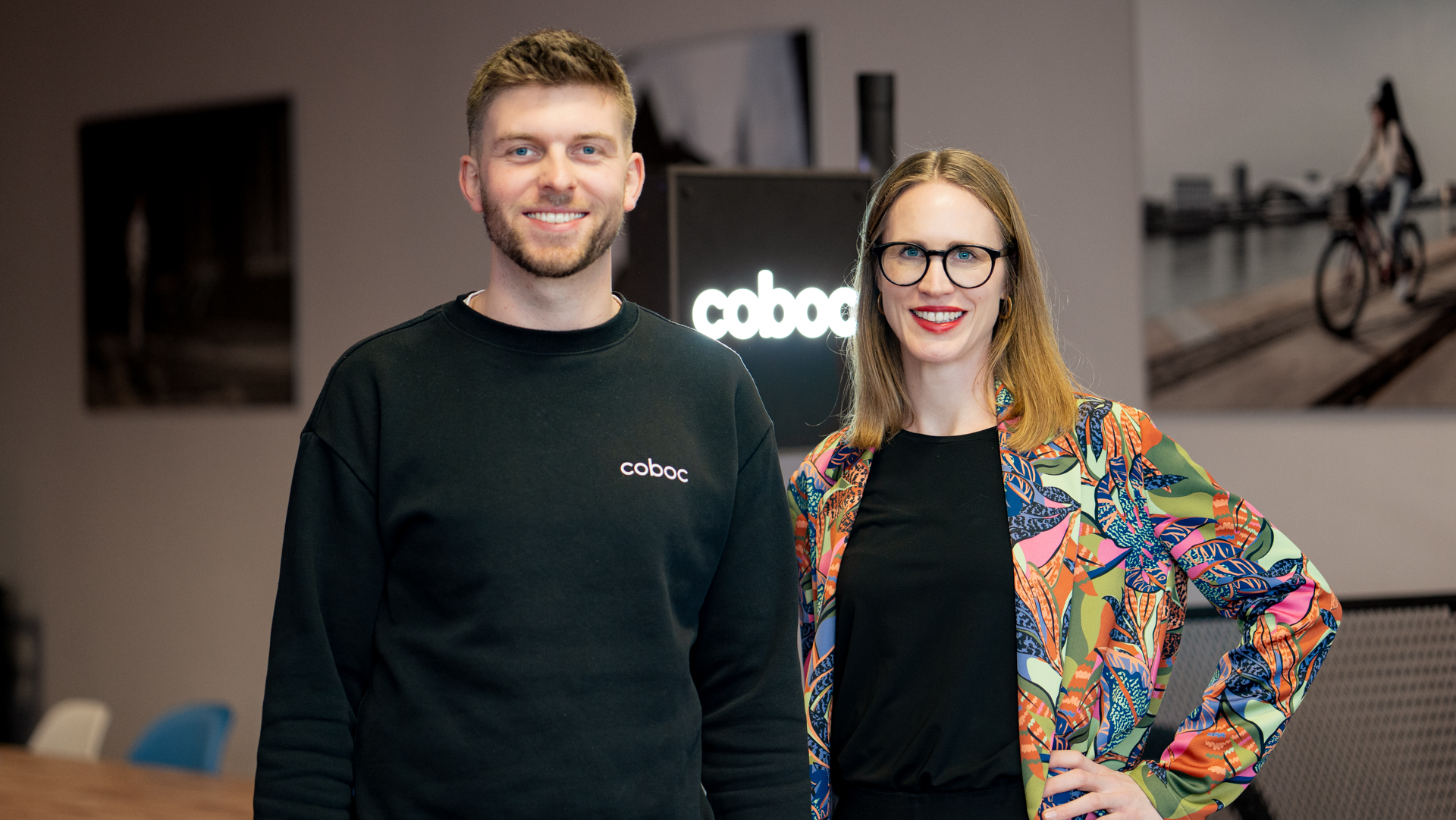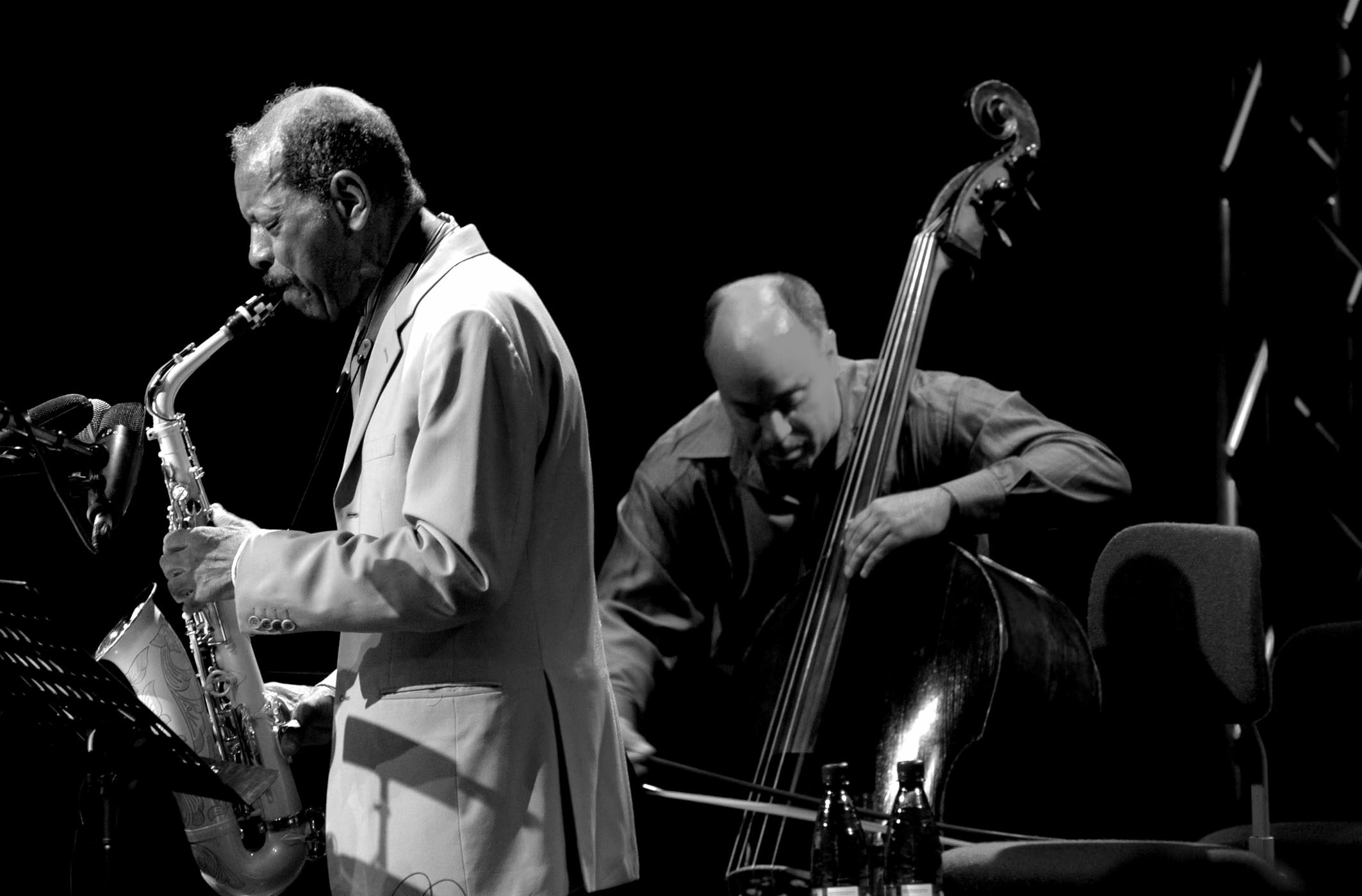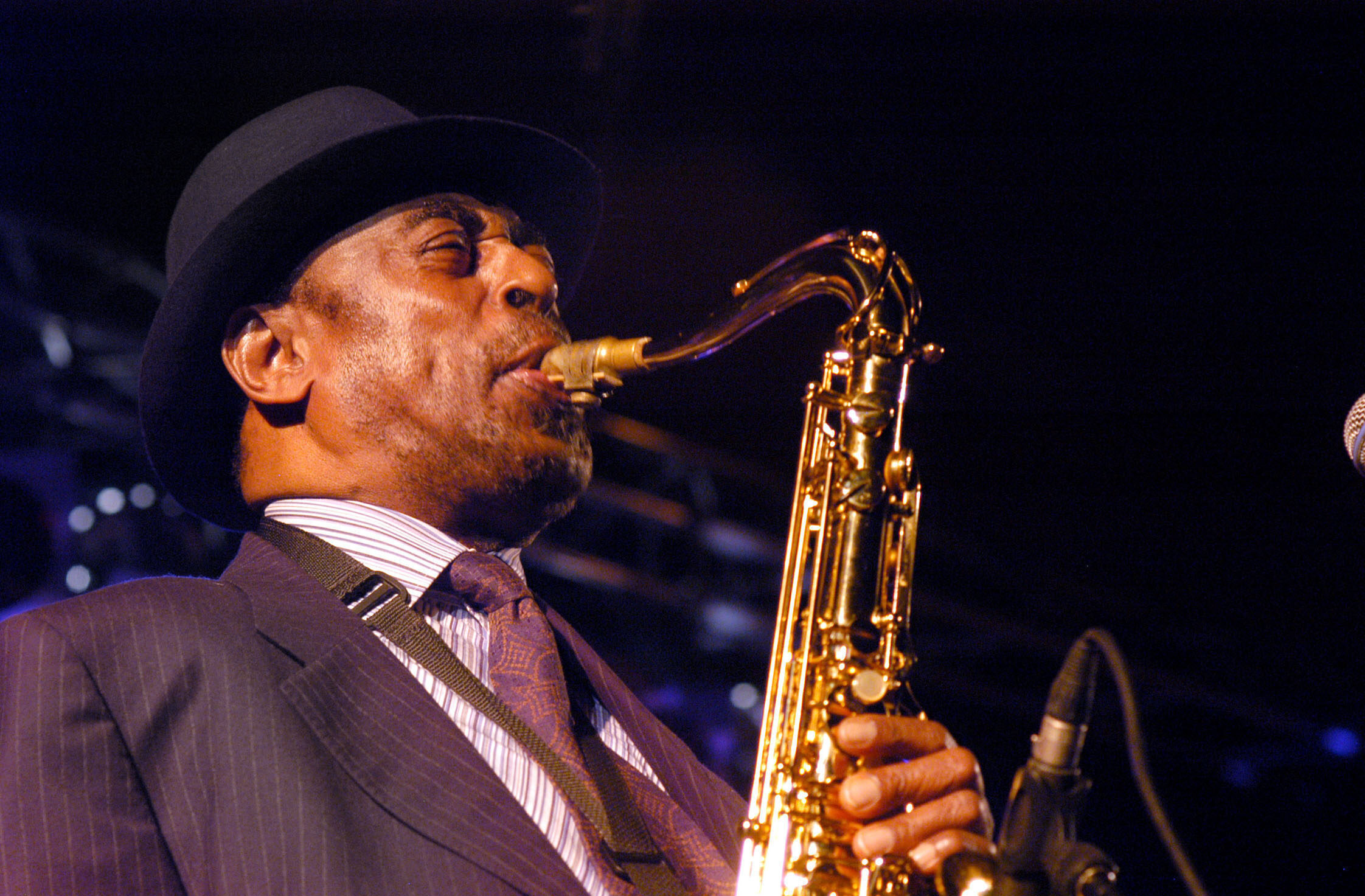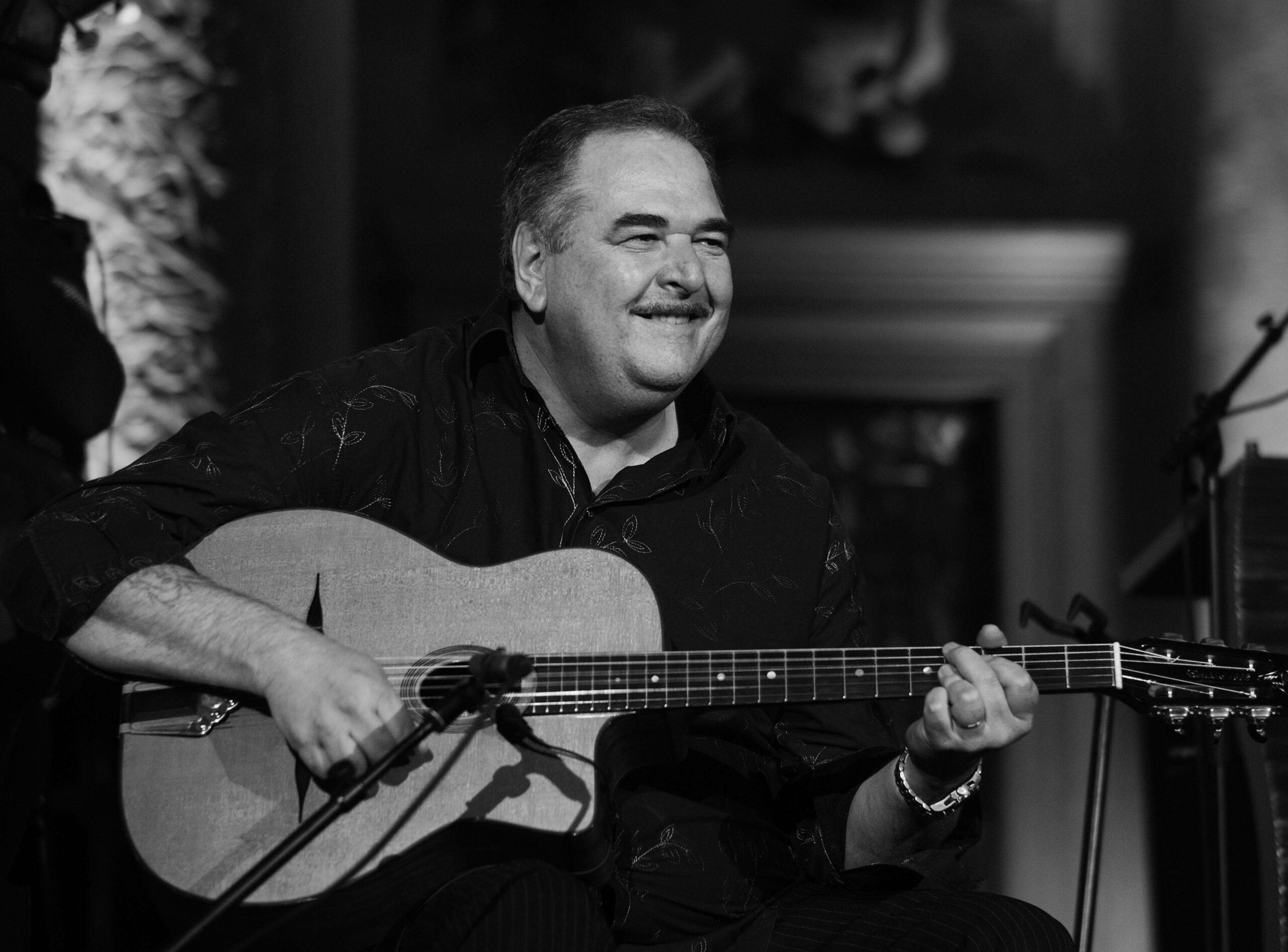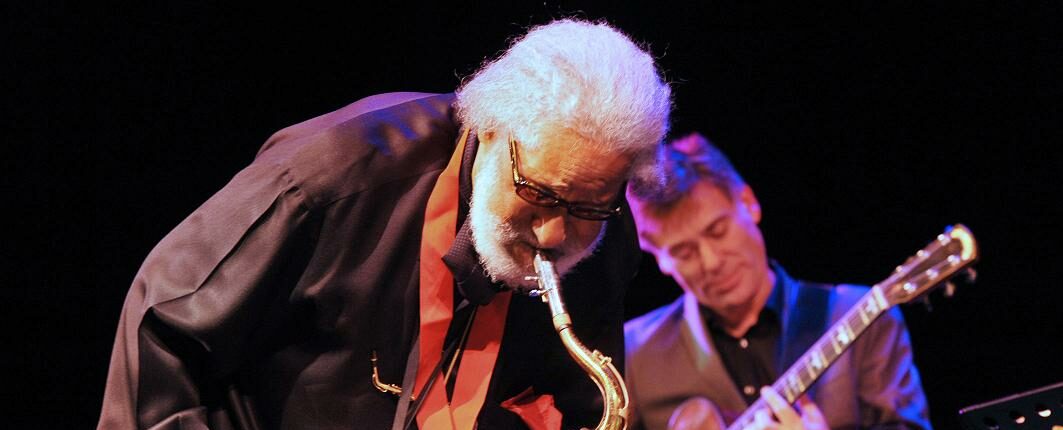On June 22, 2023, the great Peter Brötzmann, one of those hand-picked German jazz musicians who made a name for himself globally, including in the motherland of jazz, passed away. His work is an incomplete artistic mosaic in the best sense of the word. He has not only broken with tradition, he has literally broken it open physically, often inserting new pieces in a brute force and creating something new, something never heard before. This was also the case several times at Enjoy Jazz.
Peter Brötzmann, who turned 75 last year, is considered one of the most influential representatives of European free jazz - and one of the very few who were also successful in America and still are today. Consequently, he received a lifetime achievement award at the New York "Vision Festival", one of the most important avant-garde festivals in the USA, a few years ago. In addition, Brötzmann is probably the only German jazz musician with his own verb: "brötzen" is known, especially in jazz circles, as a fixed description for a free, edgy and highly energetic style of playing. This does not mean that this sound is something of a pure natural phenomenon or that Brötzmann does not work meticulously on and with it. The sound check for his duo concert with Heather Leigh at the Enjoy Jazz Festival 2016 in Heidelberg was an impressive example of this. For over an hour, he repeatedly wrestled with the sound engineers over the subtleties of his saxophone sound, extremely friendly and very jovial, but unyielding in the matter. He had the feeling that the stage sound was too narrow, so that the path to his own sound was somehow blocked; how he made it accessible again at the end was a prime example of musical and non-musical communication that should be recorded and taught at universities. An extremely impressive act of pure, undisguised musicality that was fascinating and a privilege to witness.
After posing extensively for the camera of photographer Manfred Rinderspacher, who almost has to be counted among his companions, the saxophonist, who is also a successful visual and object artist with numerous exhibitions of his own, took the time for a conversation that was downright relaxed by his rather agitated standards.
Note: This interview originally took place in 2017 and is published here on the occasion of the 25th anniversary of Enjoy Jazz. The statements and references made in the interview refer to this date.
Since the revolution, the "Wuppertal School" associated with them and Peter Kowald, or the circle around Alexander von Schlippenbach more than 50 years ago, there has been no significant new departure in German jazz.
PB: That's right. That's just the way it is. And I think it's terrible. There are certainly one or two good new players. Apart from that, there's not much that's new, but a lot that's been properly adapted. I find a lot of things very blasé these days anyway. Not just in Germany, by the way. And because you talked about our awakening back then; there aren't many of us left, Alex is almost the only one, but if we're still being called avant-garde, and perhaps rightly so, I don't know ... that doesn't cast a good light on jazz today, but there's no sense of solidarity either. anymore. This consciousness was what defined us back then. It was our starting point.
We can now lament the fact that times are changing - and rarely for the better. for the better. But of course, the current standstill also has something to do with the fact that the political situation today is much more confused and digitalization gives the impression that we know everything we need and want to know anyway. It seems as if this has taken the place of authentic experimentation. That is, of course, utter nonsense. Because when it comes to art and especially music, which is made by people for people, you can't imagine that it's a question of objective information.
Especially as the social aspect in the broadest sense is virtually constitutive for jazz.
PB: ... and always has been. You should never neglect that either. In all my lectures I therefore recommend always looking back to the beginnings, jazz is a social music, a question of community.
Free jazz already has the key concept of freedom in its name. Is it significant that it took much longer to be accepted in Germany than in America, for example?
PB: Americans simply have a much more relaxed attitude towards music. For me, the history of jazz is not a history of styles, but of personalities. But it's true that I've encountered much more open ears in America than here. In Germany, people like to pigeonhole everything and are very quick and rigorous in their judgments or decide that this or that is no longer music at all. The heart for the kind of music I made was very narrow in this country. And very little has changed to this day.
Have you never despaired of the paradox of making the freest music imaginable and at the same time the experience that many listeners felt downright threatened by this freedom?
PB: Of course. There were also physical attacks with cups of beer and other objects. There was literally all hell breaking loose. Speaking of devils: At our first concert at the FU in Berlin, all the protagonists of the time [note: the APO] were sitting in the front row, the Kunzelmanns and what they were all called. There was a huge riot. The leaders of the student movement reacted in a goddamn bourgeois way to our music. They didn't even try to understand. For them, too, the only thing that mattered was what worked on their narrow track. They probably went home after the concert and put on some Joan Baez. That was probably the furthest thing from their minds. You just can't make anything of experiences like that. You have to accept it. Until today. You can only do one thing; keep working. And I can't really complain. Although sometimes it's strange.
What do you think?
PB: Have you heard that they've set up a free jazz subject at the university in Cologne?
No, that's new to me. Academizing the anti-academic somehow sounds like a tragicomic paradox.
PB: You can only scratch your head. Really: what kind of absurdity, a perversity?
Speaking of counter-movements: There are works by them, for example with Heather Leigh, in which I recognize an almost beguiling beauty.
PB: Well, art is first and foremost a question of beauty. The only question is what the individual understands by it.
But beauty always represents a certain value system. Aren't didn't you actually set out to play against such value systems?
PB: That's part of the game. When you start something new, the old has to go on the scrap heap first. But that doesn't mean that we then pursue the same ideals in a new way. Of course, it's always about beauty somewhere. But above all, we wanted to create discrepancies, distortions, the establishment of the opposite pole and thereby show that beauty, albeit defined in a completely different way, can also emerge from this. You can also find this in Mauricio Kagel or Stockhausen, with whom I had a lot to do at the time. We agreed that what is sold to us as beauty can no longer be valid after such a war, i.e. after the Second World War. We had to start from scratch. This also meant saying goodbye to the traditional. Although I was always a fan of old jazz. Coleman Hawkins is still a great one for me today, as is Art Blakey, who traveled a lot in Europe back then John Coltrane, Sonny Rollins, Don Cherry.
Even if you ask the big European rock bands, they will tell you that it is almost impossible to be successful as a European in the USA. The country is simply too big and requires an almost seamless presence. They have managed to be successful in America for decades.
PB: I've also been working on it continuously. I play at least one US tour every year and also various individual concerts. I was also lucky that there were no other guys like me or Peter Kowald. People who weren't intimidated by the omnipotence of the American style, but simply did their thing. That was the only way to be accepted. And it worked. Since then, I've had a really good audience from New Mexico all the way up to Canada. So far, no organizer has complained.
You are what is called an artistic double talent. With visual art, you work towards something static, towards a final product, whereas music, at least music, at least if you view it primarily as live art, is fleeting and takes place over time. Two very different arts and approaches.
PB: Absolutely right. Besides, music is made by several people and I make the visual art on my own - thank God! The process makes all the difference. When I'm in my studio in Wuppertal and working, I'm really alone. I can try things out undisturbed and all to myself or simply put an object in the kiln and see how it comes out. and see how it comes out. At the moment, I'm creating small works there. Unfortunately - or fortunately - I don't have the time for larger ones. Because it's extremely important for my well-being to be out and about with the people I like and who I usually choose very consciously. However, as I get older, I realize that it has become more important for me to have some time for myself again, to just do nothing or think or put something down on paper with ink.
When you look at the competition today, do you miss art as a counter-movement?
PB: I actually spend very little time on this question. But if you are interested in my general impression: I think that art in general has developed more and more into the role of fairly light entertainment. And that's exactly what we don't need.
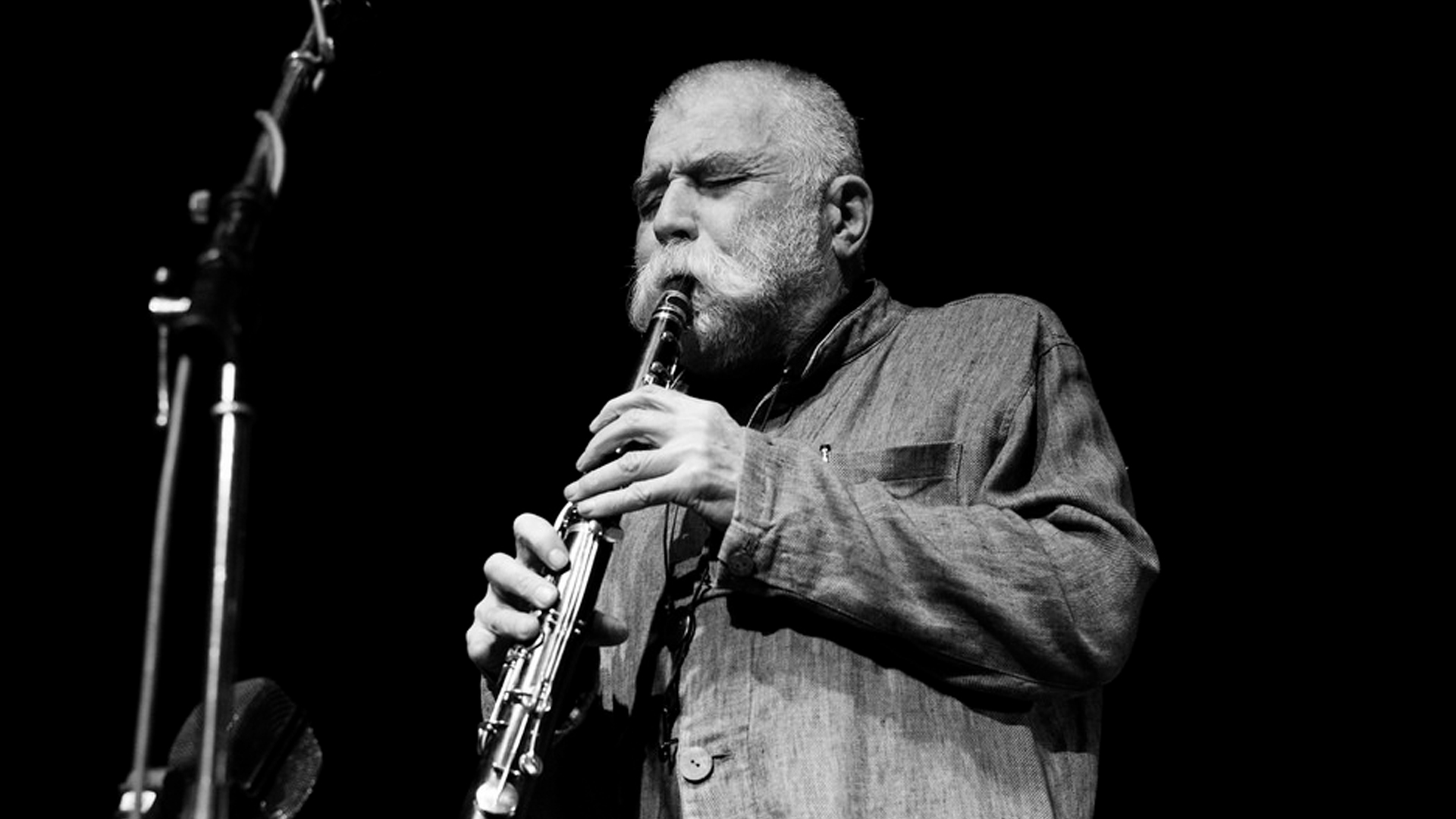
Date: December 7, 2023

